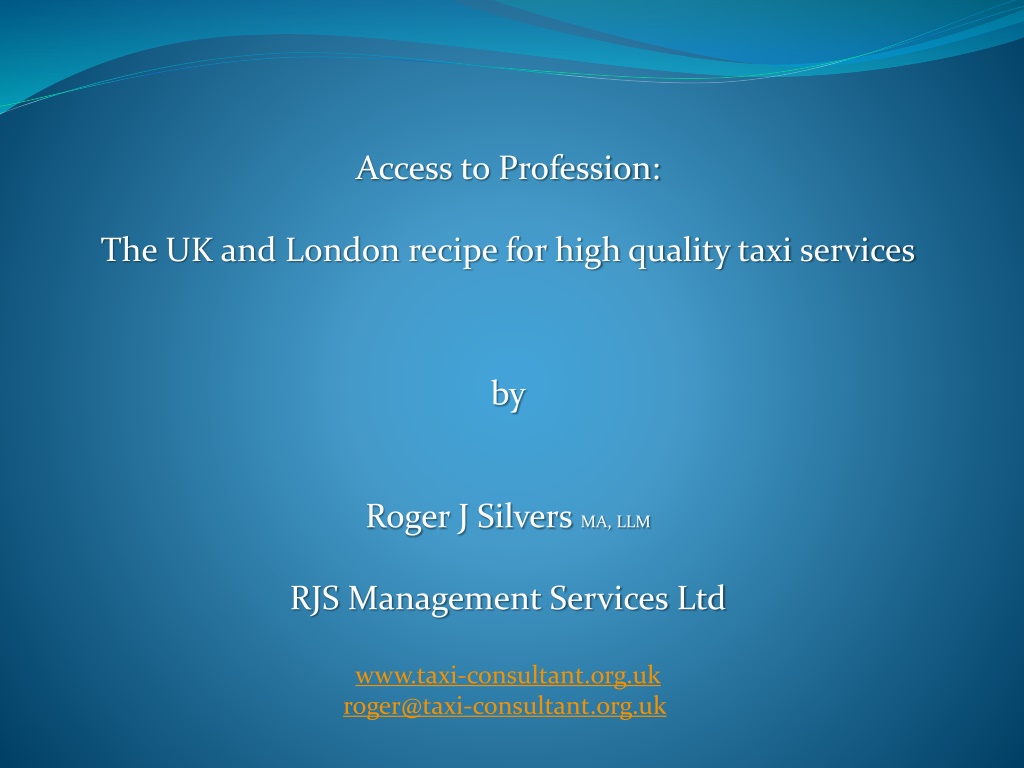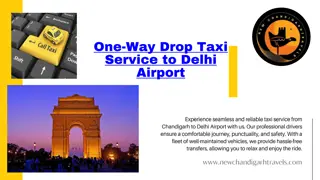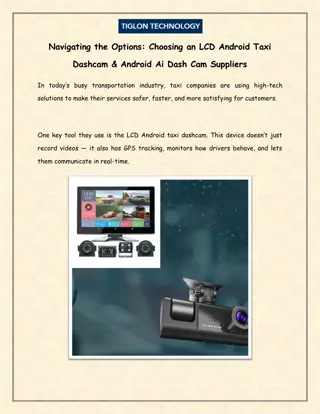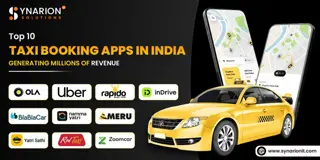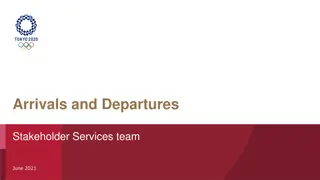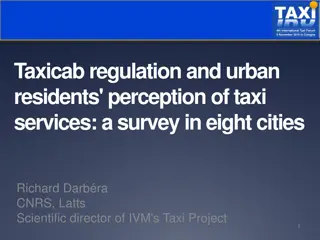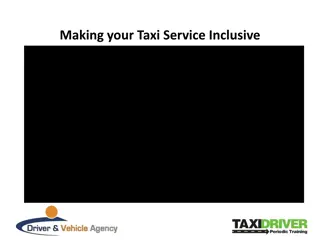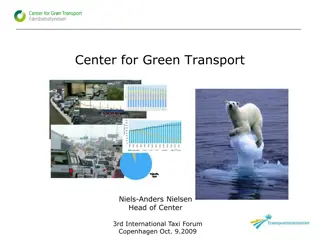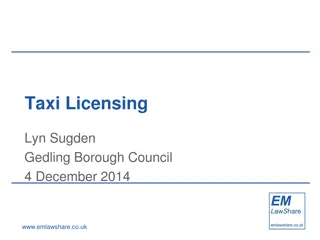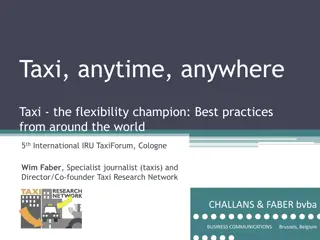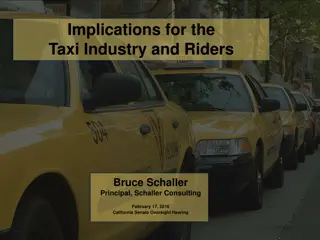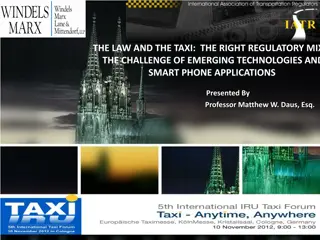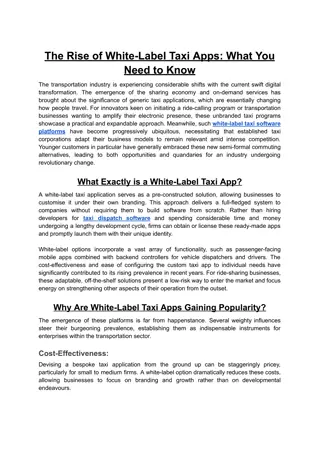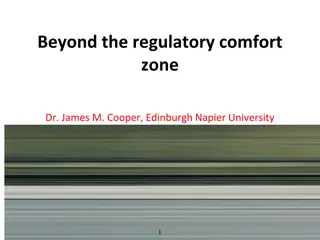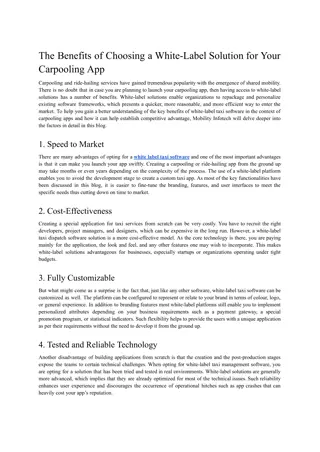Enhancing Taxi Services Skills Development in the UK and London
High-quality taxi services in the UK and London require key skills like customer care, conflict resolution, and safety laws. The industry aims to raise professionalism, improve service quality, and support skills development. Challenges include stakeholder awareness, funding, and training sustainability. Achievements include licensing authorities requiring qualifications for drivers and updated VRQ/NVQ standards. Future challenges involve national recognition, funding issues, and law reform impacting skills development.
Download Presentation

Please find below an Image/Link to download the presentation.
The content on the website is provided AS IS for your information and personal use only. It may not be sold, licensed, or shared on other websites without obtaining consent from the author. Download presentation by click this link. If you encounter any issues during the download, it is possible that the publisher has removed the file from their server.
E N D
Presentation Transcript
Access to Profession: The UK and London recipe for high quality taxi services by Roger J Silvers MA, LLM RJS Management Services Ltd www.taxi-consultant.org.uk roger@taxi-consultant.org.uk
Key skills requirements Customer care Managing conflict & difficult situations Customers with special needs Health and safety Legislation and Codes of Practice Transporting children & vulnerable persons NOS Road Passenger Vehicle Drivers (taxi, PHV, CT & Chauffeur) VRQ Level 2 & NVQ Level 2
Skills development From 2005 DfT funded project with aims & objectives: Raise the profile and professionalism of the industry, Achieve consistency of skills nationally Raise the quality of service provided Ensure sustainability of this essential service Provide an opportunity for individual skills development.
Challenges Raising awareness and obtaining support from stakeholders Lack of recognition of importance of taxi / PHV Over 300 licensing authorities No central governing body Overcoming negativity from the trade Training providers Funding for the training Sustainability
Achievements Some licensing authorities now require drivers to have VRQ and/or NVQ Some operators have adopted the qualifications Many drivers have obtained the VRQ and/or NVQ For many drivers it is their first qualification For many where English is not first language support has been given VRQ and NVQ have been updated: and private hire driver (now obtains some funding) VRQ Level 2 - Introduction to the roles of the professional taxi NVQ Level 2 Road Passenger Transport
Future challenges: VRQ and NVQ are recognised national qualifications Lack of recognition of importance of taxi/PHV Not part of public transport Cost and available funding still an issue Training providers Maintaining momentum Lack of national drive Law Commission reforming taxi and private hire services - limited support for skills development
Key to success of London 2012 Olympics & Paralympics: Essential not to ignore importance and use of taxi - PHV Dedicated taxi & PHV drop-off / pick-up facilities Value in having professional taxi marshals Ensuring accessibility for wheelchair users use of fixed ramps Good and accurate signage for drivers and spectators Good communications with taxi PHV industry essential Detailed maps and information on Games venues
THANK YOU Roger Silvers MA, LLM RJS Management Services Ltd Website: www.taxi-consultant.org.uk Email: roger@taxi-consultant.org.uk Phone: +44 (0) 121 635 5870
